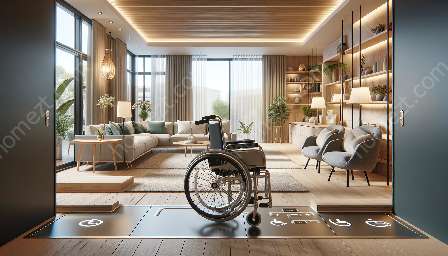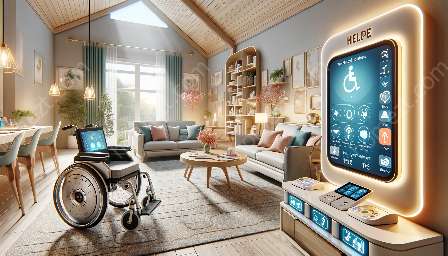People with disabilities face unique challenges when it comes to home safety and security. Among the essential components of a safe and secure home is the accessibility of alarm systems. In this article, we will explore the importance of accessible alarm systems and their role in ensuring the safety and security of individuals with disabilities.
The Impact of Home Safety for People with Disabilities
First, let's understand why home safety is particularly crucial for people with disabilities. The home should be a haven, a place where individuals feel secure and protected. However, for individuals with disabilities, the challenges related to safety and security can be amplified. Issues such as mobility limitations, sensory impairments, and communication barriers can make it more difficult to detect and respond to emergencies in a timely manner.
Therefore, it is essential to implement measures that cater to the specific needs of individuals with disabilities, ensuring that they can effectively and efficiently respond to potential safety threats. One of the critical components of such measures is the accessibility of alarm systems.
Importance of Accessible Alarm Systems
Accessible alarm systems play a vital role in ensuring the safety and security of individuals with disabilities. These systems are designed to be usable and effective for people with diverse abilities and needs. By making alarm systems accessible, we empower individuals with disabilities to take prompt and appropriate action in case of emergencies, thereby reducing the potential risks and enhancing their overall safety.
Effective Communication
One of the primary reasons why accessible alarm systems are essential is their ability to facilitate effective communication during emergencies. For individuals with sensory impairments, such as hearing loss, visual impairments, or speech impairments, traditional alarm systems may not effectively convey crucial information. Accessible alarm systems utilize alternative communication methods, such as visual alerts, tactile signals, and text-based notifications, ensuring that individuals with disabilities can receive emergency information promptly and accurately.
Enhanced Mobility
Another critical aspect of accessible alarm systems is their consideration for individuals with mobility limitations. In the event of an emergency, quick and unimpeded access to alarm controls and evacuation routes is paramount. Accessible alarm systems address this by providing features such as easily reachable control panels, clear signage, and barrier-free pathways, enabling individuals with mobility challenges to respond swiftly and evacuate safely.
Customized Alerts and Responses
Furthermore, accessible alarm systems offer the flexibility to customize alerts and responses based on individual needs. This customization can be particularly beneficial for people with cognitive disabilities, who may require specific instructions or support during emergencies. By tailoring alarm settings and response protocols to accommodate diverse cognitive capabilities, accessible alarm systems ensure that individuals with disabilities can effectively comprehend and follow emergency procedures.
Integration with Home Safety and Security
Beyond catering to the specific needs of individuals with disabilities, accessible alarm systems also contribute to overall home safety and security. These systems complement other safety measures, such as smoke detectors, carbon monoxide alarms, and home security systems, creating a comprehensive safety network that protects all occupants of the household.
By integrating accessible alarm systems into the broader home safety framework, households can achieve a more inclusive and robust safety infrastructure, promoting peace of mind for both people with disabilities and their caregivers. The seamless coordination of accessible alarm systems with existing safety and security features enhances the overall level of protection within the home environment.
The Future of Accessible Alarm Systems
As technology continues to advance, the landscape of accessible alarm systems is also evolving. Innovations such as smart home integration, remote monitoring, and artificial intelligence are increasingly being incorporated into accessible alarm solutions, further enhancing their effectiveness and usability for individuals with disabilities.
Furthermore, ongoing research and development in the field of accessibility and assistive technology are driving the creation of alarm systems that are not only functional but also intuitive and user-friendly for people with disabilities. These advancements hold the promise of revolutionizing home safety for individuals with disabilities, offering them greater independence and confidence in their ability to respond to emergencies.
Conclusion
Accessible alarm systems are a fundamental component of home safety for people with disabilities. By ensuring effective communication, addressing mobility challenges, and customizing alerts and responses, these systems play a pivotal role in safeguarding individuals with disabilities within their homes.
Moreover, the integration of accessible alarm systems with broader home safety and security measures creates a comprehensive and inclusive safety network. Looking ahead, continued advancements in accessible alarm technology hold the potential to further elevate the safety and security of individuals with disabilities, empowering them to live with greater confidence and peace of mind within their homes.





















